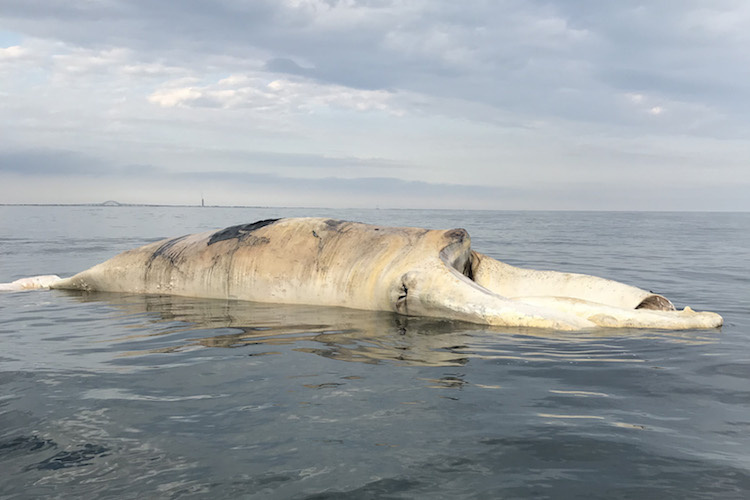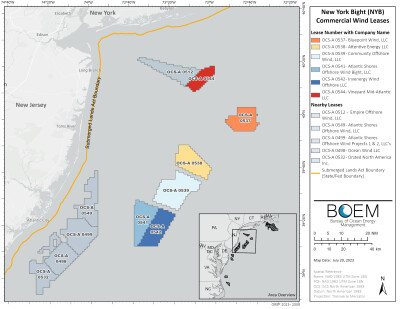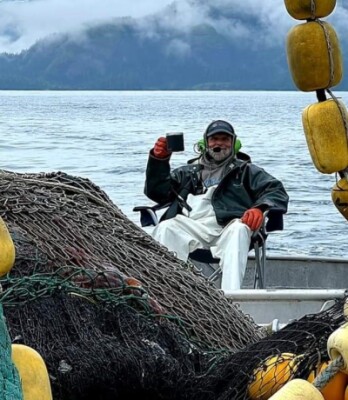A dead North Atlantic right whale found floating off New York’s Long Island Monday afternoon could raise the official death toll of the endangered species to 29 in the last two years, jacking up pressure on the U.S. and Canadian governments to slow those losses.
The latest find comes less than a week after Chris Oliver, NMFS administrator, said the agency will move ahead with rulemaking to reduce the risk of whale entanglements in fishing gear — despite a withdrawal of support for proposed measure by the Maine lobster industry.
“We intend to address the threats posed by gillnets and to humpback whales at future (Atlantic Large Whale) Take Reduction Team meetings,” Oliver said in a statement issued Sept. 11.
NMFS officials said the carcass was discovered 4 miles south of Fire Island Inlet, and was so decomposed that its age, sex and cause of death could not be determined immediately.
The agency was working on a response plan with the Atlantic Marine Conservation Society, the New York Department of Environmental Conservation and state parks, and the Fire Island National Seashore to recover the whale for further examination.
“This is the first observed right whale death in U.S. waters in 2019. An unusual mortality event has been in effect for North Atlantic right whales since 2017, during which nearly 30 whales have been found dead in U.S. and Canadian waters,” according to a NMFS statement.
North Atlantic right whales are one of the most endangered species in the world, with only about 400 remaining in waters off North America. In that population only about 95 are breeding females, according to NMFS.
The federal government is under mounting pressure to do more to protect right whales from accidental ship strikes and entanglement in fishing gear. NMFS’ efforts suffered a reversal in recent weeks, when the Maine Lobstermen’s Association — a vital partner for a proposed 50 percent reduction in vertical trap lines — backed away from the plan.
Association officials said their analysis of government data showed U.S. trap gear was linked to a far smaller number of whale injuries and deaths than ship strikes and gear conflicts with Canada’s snow crab fishery. The risk reduction target for U.S. gear was higher than necessary, they found.
Oliver said the agency was disappointed at the association's decision. But he warned that “while the Take Reduction Team strives to reach consensus recommendations, the agency will consider the extent of support for alternate proposals when consensus is not reached, and has the ultimate responsibility to take action.”
“Although the Maine lobster industry formally withdrew its support of the near consensus agreement, members of the Maine caucus have stated a willingness to continue to work with the agency, the Take Reduction Team, the state of Maine, and their members to identify measures that address the risk that the Maine lobster fishery poses to right whales,” said Oliver. “We stand ready to continue to assist Maine in whatever way possible to achieve the necessary level of risk reduction to these critically endangered whales."
Maine's governor and congressional delegation have shown unwavering public support for the fishery.
“We are currently focusing efforts on the risks to right whales, and vertical lines associated with trap/pot fisheries are an important contributing factor," said Oliver. "We appreciate the active and productive participation of Maine’s lobster industry and state government in our recent scoping meetings, and hope to achieve regionally crafted measures that will reduce the impacts on right whales, while allowing for a robust and healthy lobster fishery. In the coming months, we will proceed with rulemaking as planned.”







